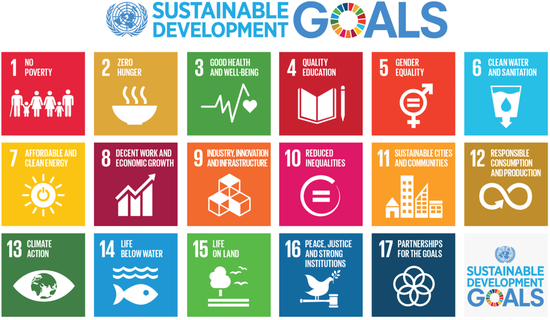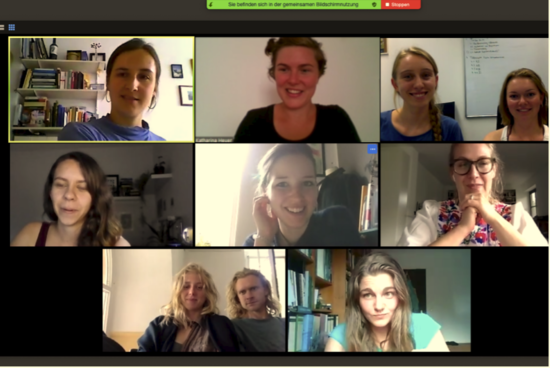Sustainable Development Goals (SDGs) Online Workshop
How to achieve the Agenda 2030
21.09.2020
By Sophie Zimmermann
Supervisor: Dr. Gesa Lüdecke
"If we don’t change our direction, we’re likely to end up where we’re headed" — Chinese proverb
What are the Sustainable Development Goals (SDGs) and what can we do to achieve them? At first sight, the SDGs seem to be a complex construct that is made for international politics and business. Having their roots in the Millennium Development Goals (MDGs), which are embedded in the mechanisms of international development cooperation, the SDGs go one step further. The SDGs are global in scope, including the global north (and thus Germany) and not just the global south. Having this in mind, I developed a workshop based on the Goals’ applicability to everyday life, focusing on the question: How can the SDGs help us to meet ecological and social challenges on a local level, creating possible solutions?

In 2015, the 2030 Agenda for Sustainable Development was accepted and signed by all UN member states. It provides a blueprint for peace and prosperity for humans and the planet, now and for future generations. At its core, stand the 17 Sustainable Development Goals (SDGs)—plus 174 targets—which are conceptualized as an urgent call for action by all countries worldwide. They focus on ending deprivation, improving health and education, reducing inequalities, driving economic growth, while at the same time demanding the mitigation of climate change and preservation of our forests and oceans.

During the workshop, we worked with two opposing goals: Economic Growth and Climate Action. The participants elaborated on the contents of each and discussed the dichotomy of economic growth, on the one hand, and the planet's finite natural resources on the other. After a comprehensive discussion including all groups, we employed aspects of the "innovation method design thinking" in order to strategically work towards possible local solutions for meeting Sustainable Development Goals 8 and 13. For this purpose, groups of three to four participants were created. During the process, I provided information on the design thinking process for the development of a purposeful outcome, highlighting critical points about the method.

At the end of the workshop, we talked about our results and the tension between economic growth and environmental protection. The participants gained a better insight into the Sustainable Development Goals as a whole, and Sustainable Development Goals 8 and 13 in particular. I also managed to provide an initial answer to the question I started with concerning the applicability of the SDGs to everyday life—that is, that the SDGs to do only apply to the international or national level; they can also be seen as a tool or guideline enabling societies and individuals to engage in sustainable practices in the current day, preserving the planet for future generations.

